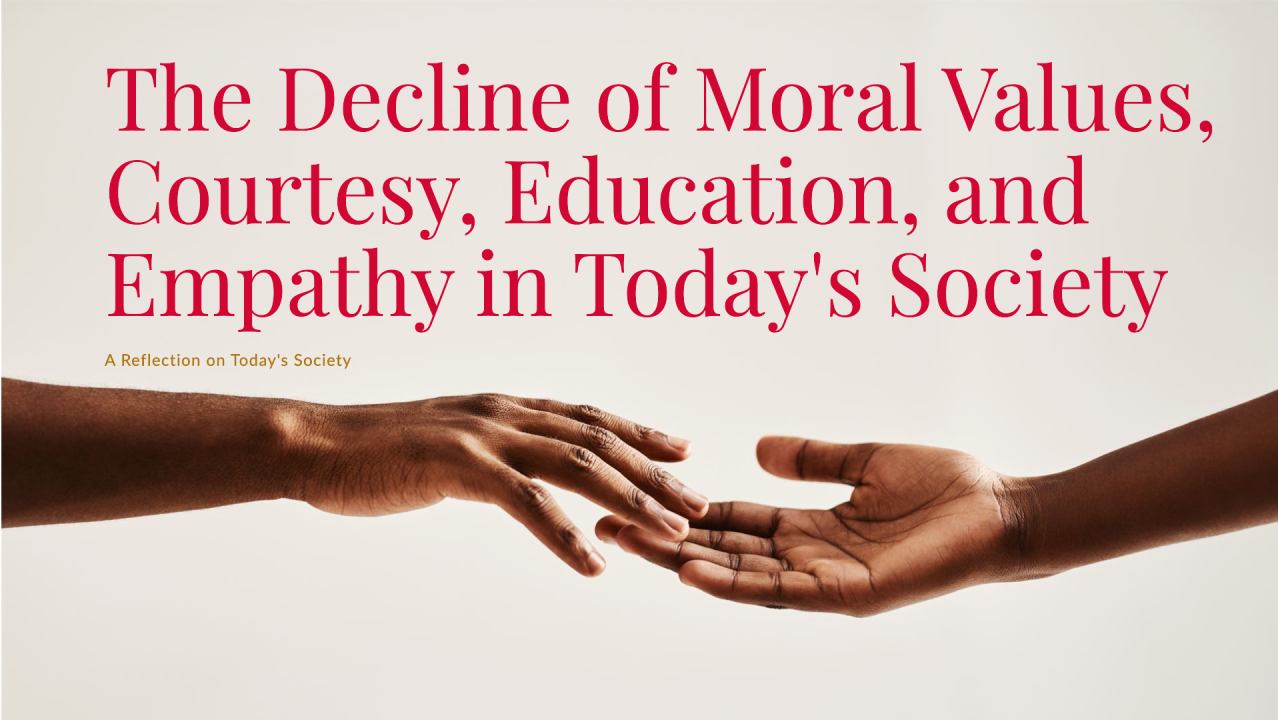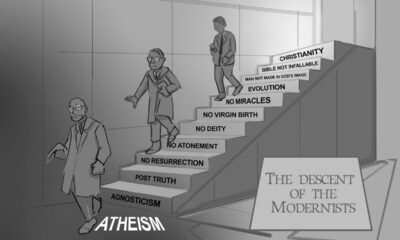Christian Life
Christian Stewardship: Managing Time, Money, and Resources for God
Stewardship is more than just a matter of financial management—it encompasses all aspects of a Christian’s life.

Christian Stewardship: Managing Time, Money, and Resources for God
Christian stewardship is a central concept in the life of a believer, urging individuals to manage their time, money, and resources in a way that reflects the values of God’s Kingdom. Stewardship is more than just a matter of financial management—it encompasses all aspects of a Christian’s life, including how one uses their talents, energy, and opportunities to serve God and others. The biblical principles of stewardship challenge believers to recognize that everything they have—time, money, talents, and possessions—ultimately belongs to God, and they are called to manage these gifts responsibly for His glory.
This article will explore the biblical foundation of Christian stewardship, its practical applications, and how believers can manage their time, money, and resources in a way that honors God. Through an understanding of stewardship, Christians are empowered to live with a sense of purpose, responsibility, and faithfulness in every area of their lives.
1. Biblical Foundations of Stewardship
The concept of stewardship is rooted in the Bible, which teaches that God is the Creator and ultimate owner of everything. Human beings, as stewards, are entrusted with the care and management of God’s creation, and they are responsible for using their resources wisely.
a. The Creator’s Ownership
From the very beginning, the Bible establishes the principle that everything belongs to God. In Psalm 24:1, the psalmist declares, “The earth is the Lord’s, and everything in it, the world, and all who live in it.” This verse highlights the truth that God is the Creator and ultimate owner of the earth and all that it contains, including human beings. Everything in creation belongs to God, and humans are called to be caretakers, managing His creation according to His will.
In the opening chapters of Genesis, God gives humanity dominion over the earth and its creatures (Genesis 1:28). However, this dominion is not to be understood as unrestricted control or exploitation; rather, it is a responsibility to care for and cultivate the earth. The concept of stewardship begins here—humans are entrusted with the responsibility to manage God’s creation in a way that reflects His character and purposes.
b. The Parable of the Talents
One of the most well-known biblical teachings on stewardship is found in the Parable of the Talents, told by Jesus in Matthew 25:14-30. In this parable, a master entrusts his servants with varying amounts of money (referred to as talents) before going on a journey. When he returns, he expects the servants to have wisely invested what he gave them. The servants who manage the money well are praised and rewarded, while the servant who hides his talent out of fear is rebuked.
This parable teaches that God expects His followers to use their gifts, time, and resources for His purposes. The talents represent not only money but also the gifts, abilities, and opportunities that God provides. The key message of this parable is that believers are accountable to God for how they use what He has entrusted to them, and they are called to use these resources wisely and productively for His Kingdom.
c. The Concept of Faithful Stewardship
Throughout the Bible, stewardship is associated with faithfulness. In 1 Corinthians 4:2, Paul writes, “Now it is required that those who have been given a trust must prove faithful.” God calls His people to be faithful stewards of all that He has entrusted to them. This faithfulness is not merely about managing material resources but about being devoted to God and His purposes. True stewardship is about aligning one’s heart and priorities with God’s will and using all of life—time, money, and resources—to bring glory to Him.
d. Stewardship of the Gospel
One important aspect of Christian stewardship is the stewardship of the Gospel. Paul refers to this in 1 Corinthians 9:17, saying, “If I preach voluntarily, I have a reward; if not voluntarily, I am simply discharging the trust committed to me.” Believers are entrusted with the message of salvation through Jesus Christ, and they are called to share this message with others. Stewardship involves not only managing material resources but also faithfully sharing the Good News with those around us.
2. Stewardship of Time
Time is one of the most valuable resources that God has given to humanity. Unlike money or possessions, time cannot be replenished once it is spent, making it essential to manage it wisely. The Bible has much to say about how Christians should view and use their time.
a. Time as a Gift from God
The Bible teaches that time is a gift from God, and believers are to use it wisely. In Ephesians 5:15-16, Paul writes, “Be very careful, then, how you live—not as unwise but as wise, making the most of every opportunity, because the days are evil.” This verse urges Christians to make the most of their time, recognizing that each moment is a gift that should be used for God’s purposes.
In Psalm 90:12, the psalmist prays, “Teach us to number our days, that we may gain a heart of wisdom.” This prayer reflects the understanding that time is limited, and thus it should be valued and used wisely. Christians are called to be intentional with their time, prioritizing activities that align with God’s will and purposes.
b. Time for Worship and Rest
One key aspect of managing time well is setting aside time for worship and rest. In the Ten Commandments, God commands His people to observe the Sabbath and keep it holy (Exodus 20:8-11). The Sabbath is a day of rest, a time for worship, and a reminder of God’s provision and care. In the New Testament, Jesus affirms the importance of rest and spending time with God (Mark 6:31).
In the busy and demanding world we live in, taking time for worship and rest is vital for maintaining spiritual health. A balanced life includes time for God, rest, and renewal. By setting aside regular time for worship, prayer, and reflection, believers honor God and maintain a proper perspective on life.
c. Time for Service
Stewardship of time also involves using time for serving others. The Bible teaches that Christians are called to love their neighbors and serve those in need. In Galatians 6:10, Paul writes, “Therefore, as we have opportunity, let us do good to all people, especially to those who belong to the family of believers.” Believers are to be generous with their time, seeking opportunities to serve others in practical ways and to share the love of Christ.
Time should not only be spent on personal pursuits but also invested in serving others and advancing God’s Kingdom. Whether through volunteer work, helping those in need, or sharing the Gospel, Christians are called to use their time to bless others and bring glory to God.
3. Stewardship of Money
Money is often seen as one of the most challenging areas of stewardship. The Bible addresses the proper attitude toward money and the responsibility of believers to manage it wisely.
a. Money as a Tool, Not an Idol
The Bible teaches that money itself is not evil, but the love of money is. In 1 Timothy 6:10, Paul writes, “For the love of money is the root of all evil.” Money, when used properly, is a tool that can further God’s purposes, but when it becomes an idol or a source of security, it leads to spiritual ruin.
Jesus warns in Matthew 6:24, “No one can serve two masters. Either you will hate the one and love the other, or you will be devoted to the one and despise the other.” This verse highlights the importance of not allowing money to take the place of God in our hearts. Believers are called to prioritize God’s Kingdom over material wealth.
b. Generosity and Tithing
A key aspect of Christian stewardship of money is generosity. The Bible encourages believers to be generous with their finances and to give to those in need. In 2 Corinthians 9:6-7, Paul writes, “Remember this: Whoever sows sparingly will also reap sparingly, and whoever sows generously will also reap generously. Each of you should give what you have decided in your heart to give, not reluctantly or under compulsion, for God loves a cheerful giver.”
Tithing, or giving a tenth of one’s income, is another biblical practice that helps believers manage their money in a way that honors God. While tithing is not a requirement for New Testament believers, it is seen as a guideline for generosity. Jesus commended the widow who gave all that she had, illustrating that God values sacrificial giving over mere amounts (Mark 12:41-44).
c. Wise Financial Management
In addition to generosity, the Bible teaches the importance of wise financial management. Proverbs 21:5 says, “The plans of the diligent lead to profit as surely as haste leads to poverty.” Christians are called to be responsible in managing their money, avoiding debt, and making wise financial decisions. This includes budgeting, saving, and planning for the future in a way that reflects trust in God’s provision and faithfulness.
Jesus also encourages His followers to count the cost before making financial commitments (Luke 14:28-30). Believers are called to make thoughtful and responsible decisions about their finances, ensuring that their spending habits reflect their values and priorities.
4. Stewardship of Resources and Talents
In addition to time and money, believers are entrusted with various resources and talents—skills, abilities, and opportunities that can be used for God’s Kingdom. The Bible teaches that each person has been given unique gifts and talents, and these are to be used for the benefit of others and the glory of God.
a. Using Gifts for Service
In 1 Peter 4:10, Peter writes, “Each of you should use whatever gift you have received to serve others, as faithful stewards of God’s grace in its various forms.” God has equipped each believer with unique gifts, whether in the form of teaching, leadership, service, encouragement, or other abilities. These gifts are not meant to be hoarded or used for personal gain but are
to be used in service to others.
b. Opportunities for Kingdom Work
God also gives believers opportunities to advance His Kingdom through their work, relationships, and everyday activities. Colossians 3:23-24 teaches that “whatever you do, work at it with all your heart, as working for the Lord, not for human masters, since you know that you will receive an inheritance from the Lord as a reward.” Every opportunity to serve, whether in the workplace, the community, or at home, is an opportunity to be a faithful steward of God’s resources.
5. Conclusion
Christian stewardship involves managing all the resources that God has entrusted to us—our time, money, talents, and opportunities—in a way that honors Him. The Bible teaches that everything belongs to God, and we are called to be faithful stewards of His gifts. By managing our time wisely, being generous with our money, and using our talents for God’s purposes, we fulfill our role as faithful stewards in His Kingdom. Ultimately, Christian stewardship is about living with a sense of purpose and responsibility, recognizing that all we have belongs to God, and using it to bring glory to His name and further His work on earth.
Christian Life
The Tragedy of Moral Decay in Higher Learning institutions
Explore the growing moral decay in higher learning institutions, its causes, consequences, and impact on academic integrity and societal values.

For years, universities, Colleges and other Higher learning institutions were seen as places of intellectual growth and character development. However, many higher learning institutions today have become breeding grounds for moral decadence, where students and even lecturers engage in behaviors that destroy both academic integrity and personal values. From unchecked sexual immorality to rampant substance abuse, violence, and corruption, the decay runs deep.
Sexual immorality is one of the biggest stains on campus life. What was once considered shameful has become normal, even celebrated. Fornication is common, with students engaging in casual relationships driven by lust rather than love. Many young women fall victim to deceitful love affairs, only to be left heartbroken and used.
The normalization of lesbianism and homosexuality has also taken root. Some students, influenced by peer pressure or curiosity, experiment with same-sex relationships, leading to moral confusion and identity crises. Others engage in secret affairs with older partners or even lecturers who manipulate them in exchange for better grades or
financial benefits. Adultery is rampant, with some married lecturers preying on students, turning the academic environment into a den of sexual corruption.
Academic dishonesty is another deep-seated issue. Hard work and diligence are now seen as outdated concepts, replaced by cheating, bribery, and leaked examination papers. Some students no longer feel the need to study, relying instead on corrupt lecturers who sell grades to the highest bidder. The value of education has been reduced to a mere transaction, and many graduates leave university without the knowledge or skills needed to succeed.
Campus life has also become synonymous with drug and alcohol abuse. The pursuit of pleasure has overtaken the pursuit of knowledge. Many students indulge in excessive drinking, turning nights into a blur of parties and reckless behavior. The use of drugs—marijuana, cocaine, and other harmful substances—has become widespread, with some students getting addicted and ruining their futures.
Smoking is no longer seen as a bad habit but as a sign of independence and “maturity.” Shisha lounges and secret drug dens operate freely, drawing in young people who waste their lives in addiction. Many students skip classes, spending their time in bars and drug joints rather than in lecture halls.
As morality declines, violence increases. The lack of self-control and discipline among students has led to tragic incidents of stabbings and deadly fights. Many of these cases stem from toxic love triangles, where jealousy and betrayal push students to take extreme actions.
Reports of students stabbing each other to death over relationships have become disturbingly common.
A boyfriend catches his girlfriend texting another man and, in a fit of rage, pulls out a knife. A girl, blinded by jealousy, attacks a fellow student over suspicions of an affair. Such incidents reveal the deep emotional instability and lack of moral guidance among students, leading to irreversible consequences.
Campus hostels, once meant to be safe spaces for students, have become crime scenes where love-fueled violence erupts. Arguments escalate into fistfights, and fistfights turn into stabbings. Instead of resolving conflicts through dialogue, students resort to deadly force, ending promising lives before they even begin. The inability to manage emotions, coupled with the influence of drugs and alcohol, has made universities hotbeds of violence.
With all these vices comes an inevitable consequence: depression and hopelessness. Many students, trapped in toxic relationships, addiction, and academic failure, fall into deep despair. The pressure to fit into this morally decayed society leaves many feeling empty and worthless.
Christian Life
Nakuru and its Famous Prophet Dr. Owuor

The people of Nakuru love Prophet Dr. David Owuor very much. In the just concluded meeting in NAKURU they didn’t shun to openly confess it.
The business community at large confessed that business flourish most in the presence of the Prophet in the city, owing to the large influx of millions.

Interestingly, the business community gather together in masses at Merica Hotel every morning when the prophet is in the city. Then the prophet comes preaches to them a bit and blesses them.
The next day they will still come again, they feel that the Prophet replenishes their hearts every day.
As the super brilliant and magnificent chariot-like convoy of the prophet heads to the grounds of the healing service or conference, the Bodaboda people in the city escort the elegant convoy of the prophet. It’s a situation full of color and circumstance.
The Prophet preserves acres of lands deliberately near His meetings for the hustlers and all business people to help them take advantage of the millions upon millions. The Prophet further supplies the business people with water and other amenities they need to flourish their business.
When he was leaving Nakuru last Saturday, the business people and the city community gathered in largest numbers at Merica Hotel Kenyatta avenue to Bid Him goodbye. They confessed that they felt sorrowful that he was leaving because they love him very much. The Prophet blessed their families, business, health, new year and encouraged them to love Jesus and live in holiness.
When the Magnificent convoy of the Prophet had left, many people criss-crossed the streets through a short cut to bid the prophet goodbye for a second time.
Had it been possible they would have followed the meteoric Convoy of the prophet; they say that they see the JESUS in the prophet.
The leaders of the county government of Nakuru also thanked the prophet for helping flourish the economy of Nakuru.
Video courtesy; A viral video of a phenomenal in Nakuru, as the City community, business people, hustlers, the rich, all together with believers lined up all the way towards the foot Bridge Celebrating, joyous and bidding goodbye to the wonder inspiring magnificent Convoy of prophet Dr. David Owuor Leaving Nakuru last Saturday.
They requested that the Prophet be coming many times to Nakuru as possible. The Matatu operators also say the same.
Christian Life
What is the Meaning of Christianity?
Christianity is founded on the life, teachings, death, and resurrection of Jesus Christ

Christianity is one of the world’s largest and most influential religions, with over two billion followers worldwide. Rooted in the teachings of Jesus Christ, Christianity is a faith that emphasizes love, grace, redemption, and a personal relationship with God. It has shaped cultures, philosophies, and civilizations for over two thousand years. But what exactly is Christianity, and what does it mean to be a Christian? This article explores the core beliefs, practices, and significance of Christianity in the lives of believers and society.
The Foundations of Christianity
Christianity is founded on the life, teachings, death, and resurrection of Jesus Christ. The name “Christianity” comes from “Christ,” which means “the Anointed One” in Greek. Christians believe that Jesus is the Son of God and the promised Messiah prophesied in the Old Testament. The core foundation of Christianity is rooted in the Bible, which consists of the Old and New Testaments, serving as the authoritative scripture for faith and practice.
God and the Trinity
One of Christianity’s central doctrines is the belief in one God who exists in three persons: God the Father, God the Son (Jesus Christ), and God the Holy Spirit. This doctrine, known as the Trinity, affirms that God is one in essence yet distinct in personhood. The Trinity is a profound mystery that underscores the complexity and unity of God’s nature.
Jesus Christ: The Savior
At the heart of Christianity is Jesus Christ, whom Christians believe to be both fully divine and fully human. Jesus lived a sinless life, performed miracles, and preached about the Kingdom of God. His teachings emphasized love, forgiveness, humility, and the importance of faith in God. His crucifixion is seen as the ultimate sacrifice for humanity’s sins, and His resurrection is the cornerstone of Christian faith, signifying victory over sin and death.
Salvation and Grace
Christianity teaches that salvation is a gift from God and cannot be earned through good deeds alone. Instead, it is granted through faith in Jesus Christ. According to Ephesians 2:8-9, “For it is by grace you have been saved, through faith—and this is not from yourselves, it is the gift of God—not by works, so that no one can boast.” This concept of grace underscores the unconditional love and mercy of God toward humanity.
The Bible: The Word of God
The Bible is regarded as the inspired and authoritative Word of God. It is divided into two main sections:
- The Old Testament, which includes the creation story, the history of Israel, prophecies, and wisdom literature.
- The New Testament, which focuses on the life and teachings of Jesus, the acts of His apostles, and letters to early Christian communities.
The Bible serves as a guide for moral living, spiritual growth, and understanding God’s will. Christians rely on scripture for wisdom, encouragement, and direction in their daily lives.
The Purpose of Christianity
Christianity provides meaning and purpose by answering fundamental questions about existence, morality, and the afterlife. It teaches that humans are created in God’s image, endowed with intrinsic value and purpose. The primary goal of a Christian life is to glorify God, cultivate a relationship with Him, and follow Christ’s teachings.
Love and Compassion
Christianity emphasizes love as the greatest commandment. In Matthew 22:37-39, Jesus declares, “Love the Lord your God with all your heart and with all your soul and with all your mind. This is the first and greatest commandment. And the second is like it: Love your neighbor as yourself.” Love, kindness, and compassion are central to Christian living.
Spiritual Transformation
Becoming a Christian is not just about following a set of rules but undergoing a transformation of the heart and mind. Christians believe in being “born again” (John 3:3), signifying a spiritual rebirth through faith in Christ. This transformation leads to a life of righteousness, humility, and a commitment to doing God’s will.
Christian Practices and Traditions
Christianity is expressed through various practices, rituals, and traditions that strengthen faith and foster community.
Prayer and Worship
Prayer is a fundamental aspect of Christian life. It is a way to communicate with God, seek guidance, express gratitude, and intercede for others. Worship, both personal and communal, is an essential practice, with churches serving as places for praise, teaching, and fellowship.
Sacraments and Ordinances
Many Christian denominations observe sacraments or ordinances that symbolize and affirm faith. The two most widely recognized are:
- Baptism: A public declaration of faith and identification with Christ’s death, burial, and resurrection.
- Holy Communion (Eucharist): A remembrance of Jesus’ sacrifice, commemorating His body and blood through bread and wine.
Fellowship and Church Community
Christianity is not meant to be practiced in isolation. Believers gather in churches to encourage one another, worship together, and study the Bible. The church serves as a spiritual family, providing support, accountability, and opportunities for service.
Christianity’s Influence on Society
Christianity has profoundly impacted history, culture, and ethics. It has inspired humanitarian efforts, education, art, and governance.
Moral and Ethical Teachings
Christian ethics have shaped societal values, emphasizing justice, honesty, charity, and the dignity of human life. Many legal systems are influenced by Christian principles of morality and justice.
Charity and Humanitarian Work
Christianity promotes caring for the less fortunate. Many hospitals, schools, and relief organizations have Christian roots. Christians engage in missionary work, disaster relief, and social justice initiatives worldwide.
Christianity and the Afterlife
Christians believe in eternal life and the promise of heaven. According to John 14:2-3, Jesus assures His followers: “My Father’s house has many rooms… I am going there to prepare a place for you.” The hope of eternal life gives meaning to human existence and encourages believers to live with purpose and integrity.
Challenges and Misconceptions About Christianity
Despite its profound influence, Christianity is often misunderstood or misrepresented. Some common challenges include:
- Misinterpretations of Doctrine: Different denominations have varying theological interpretations, sometimes leading to confusion.
- Criticism of Hypocrisy: While Christianity teaches love and righteousness, some critics highlight instances of moral failure among self-professed Christians.
- Secularism and Atheism: In a rapidly secularizing world, Christianity faces challenges from skepticism and scientific materialism.
Conclusion
Christianity is more than just a religion; it is a way of life centered on faith, love, and a relationship with God through Jesus Christ. It provides answers to life’s deepest questions, offers hope and purpose, and calls believers to live out their faith through love, service, and spiritual transformation. Whether through prayer, worship, or acts of kindness, Christianity remains a guiding force for millions, shaping both individual lives and entire civilizations.
-

 End Times Updates10 months ago
End Times Updates10 months agoProphet Dr. Owuor Awakens Brazil: A Call to Holiness to the Contemporary Church.
-

 Bible11 months ago
Bible11 months agoIsrael War With Iran Significance
-

 End Times Updates10 months ago
End Times Updates10 months agoThe Book of Revelation: A Chapter-by-Chapter Breakdown
-

 Bible12 months ago
Bible12 months agoIsrael Releases Palestinian Prisoners in Hostage Exchange
-

 Jesus10 months ago
Jesus10 months agoRaising Children Together: A Biblical Approach to Parenting in Marriage
-

 Church History10 months ago
Church History10 months agoBiblical Principles for Dealing with Conflict
-

 Bible11 months ago
Bible11 months agoDo Israelites Use the Bible?
-

 Jesus12 months ago
Jesus12 months agoThe Power of Prayer in Strengthening Your Marriage

















